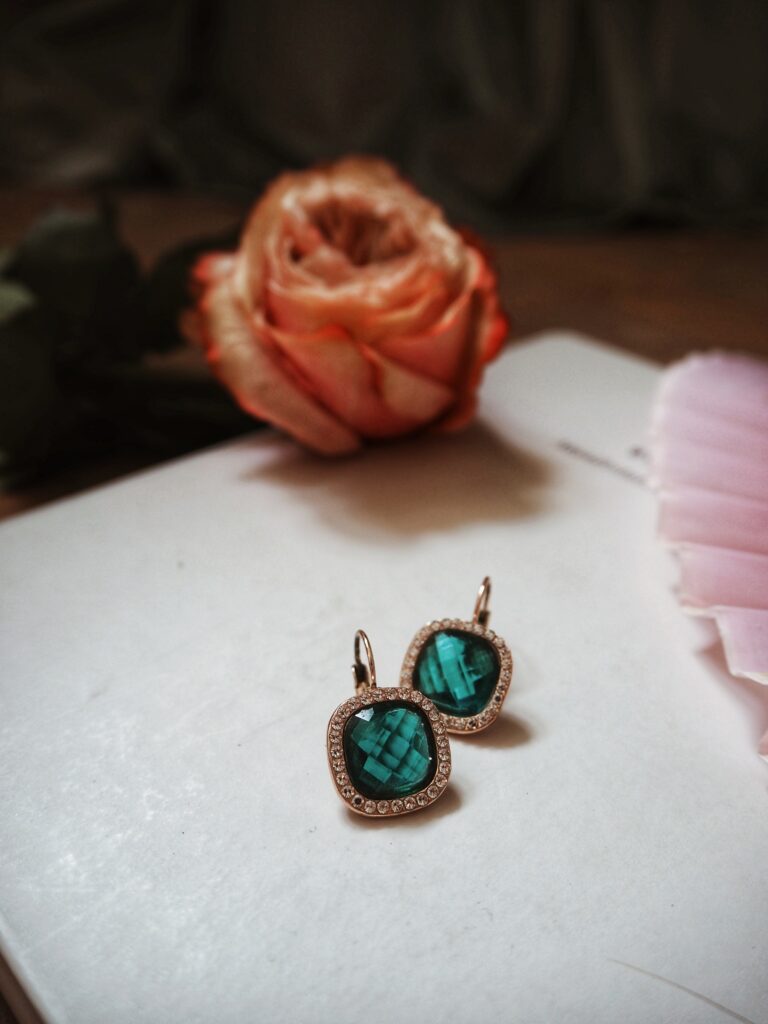So often we hear people being nasty at others who show any type of sensitivity, but what if sensitivity is not a weakness like they would like us to believe?
Does any or some of this resonate:
- when growing up you felt quite different from everyone around you, maybe even suspected there might be something wrong with you?
- you are resilient and can easily adapt to new situations, even against impossible odds, but at the same time you feel everything very strongly, even on a physical level?
- loud noises, bright lights and sudden changes in weather affect your wellbeing (at least momentarily)?
You may also see “through people” despite all pretense and absorb the feelings and emotions of the people around you. It can all be a bit too much especially if you live in a country where showing your emotions is not encouraged.
That was the story with me and it presented some obvious problems. Mainly self-esteem related issues so I often wondered “Why am I so different, what’s wrong with me?”
I’ve always felt the feels very deeply and have a strong temperament. The temperament I definitely inherited from family, but they are better able to hide their true feelings and emotions. I never understood why I should act the same way.
Even if I wanted to, I can’t hide how I feel. Particularly with negative feelings, which often cause actual physical reactions; for example, stress manifests as stomach ache or even fever. Or changes in weather/climate!
It’s now been confirmed that I have Seasonal Affective Disorder (SAD), which basically renders me into a passive being every Autumn. There’s no getting out of that state with mindset or technology gimmicks.
These are things you can’t hide no matter what the cultural norms would have you do. Nowadays we have all sorts of diagnoses that make life for people like us easier or at least more understandable. Neurodivergent people are everywhere around us and what unites them all is sensitivity.
5 Reasons Why Sensitivity is NOT a Weakness
In a world that often prioritizes toughness and resilience, sensitivity is frequently misunderstood and undervalued. Despite technological advancements and medical discoveries, too many still perceive sensitivity as a weakness.
It’s something that makes individuals fragile or overly emotional. However, in today’s rapidly changing and interconnected society, sensitivity is not just an asset but a necessity. Sensitivity is not a weakness but instead:
- fosters empathy
- enhances communication
- and allows for deeper connections between people.
People who are considered ‘sensitive’ are often diagnosed with some sort of neurodivergence. This could be many things from autism to ADHD to dyslexia or a new one; dyscalculia. This means severe difficulties in understanding numbers. Hello. It’s me! ??
Despite whatever difficulties these ‘conditions’ present to us, I encourage you to view this from a completely different perspective: what if sensitivity is actually a powerful tool for navigating the complexities of the modern world?
Neurodivergence is not a disability but the system we exist in is inadequate, aka disabled!
No matter what neurotypical medical professionals might say, my extensive life experience has shown that neurodivergence is not a disorder or a disability! It’s a gift that the disabled system we live in tries to suffocate because it doesn’t benefit the few people who run the system that was made to fail. I’ll prove this to you!
Sensitivity Enhances Empathy and Compassion
Reason number 1 why sensitivity is NOT a weakness is the role it plays in our ability to feel empathy and compassion. Just look at the world around us: how well are things going when we lack empathy and compassion? Everything burns!
And still there are so many twats who think us sensitive folk are somehow less than them. Of course such incompetent people are completely wrong about things they don’t understand. Because here’s the fact of the matter:
- One of the most significant advantages of sensitivity is its ability to cultivate empathy.
- Sensitive individuals tend to be more attuned to the emotions of others.
- Consideration for others allows sensitive people to understand different perspectives and react/respond with kindness.
If we think about this in practice: anyone can be nasty, mean, even cruel. It takes no skill or effort to be selfish. But many people struggle to feel or show empathy and compassion.
Now, in my books this makes those individuals the ‘weak substance’ instead of the ones who are able to take other people into account in addition to themselves. Wouldn’t you agree?
In an era where social divisions and misunderstandings are prevalent, the ability to empathise is crucial! It enables people to support one another, build meaningful relationships, and create a more inclusive and understanding society.
We can’t see it yet, but these are the traits that will eventually save us all. Yes, also the cruel, selfish ones.

Improved Communication and Emotional Intelligence
Another reason sensitivity is not a weakness but an asset is its role in communication. Being sensitive means being a keen observer of non-verbal cues, tone, and subtle shifts in conversation. You might not do it on purpose but you always notice things neurotypicals don’t 😉
Awareness like this allows for more thoughtful and effective communication, which in turn reduces conflicts and misunderstandings. I mean, imagine a world where people wouldn’t get offended for no reason or for things they don’t actually understand!
Or a world where we could have nuanced conversations with people who don’t agree with us. What a wonderful world that would be… And what about a workplace without unnecessary conflicts?!
Individuals with high emotional intelligence, which is a trait closely linked to sensitivity, are often more successful in leadership roles, teamwork, and customer relations because they are able to navigate interpersonal dynamics with greater ease. Yet we are called the weak ones?
Creativity and Innovation
Knowing everything we’ve covered so far, it’ll come as no surprise that sensitive individuals also tend to have rich inner lives and a heightened awareness of their surroundings. Ring a bell? Certainly does for me!
This, in turn, leads to more creative and innovative approaches in life, relationships, work, etc. We know that many artists, writers, and thought leaders possess a deep sensitivity that enables them to perceive nuances others miss. Doesn’t this just prove that sensitivity is NOT a weakness?
The ability to process emotions deeply and reflect on experiences has multiple long-reaching benefits. Chief among them originality and creative problem-solving, both of which are essential in all industries from technology to the arts.
Sensitivity in Leadership and Social Change
Contrary to the outdated notion that leaders must be tough and unemotional, sensitivity is an essential trait for effective leadership. This is something that many current leaders try to fight against.
Ironically they’re mostly old men who are leaders only because the women in their lives (wives and mothers) enabled it. I mean, just look at them! Can you tell me with a serious face that any of these men got to where they are because they’re competent and highly skilled?
The only thing these people have been good at is manipulating. And guess what? Sensitive people do that better too! They don’t need to, though, because leaders who are in touch with their own emotions and those of others tend to inspire loyalty, trust, and motivation within their teams. Clearly sensitivity is not a weakness.
Furthermore, social change can mainly be driven by individuals who deeply feel the injustices of the world and take action to address them. Sensitivity is the force behind advocacy, activism, and humanitarian efforts that seek to create a fairer and more just society. A society where we all benefit instead of just the 1%.
Mental Well-Being and Authenticity
What about on a personal level? Would you believe that sensitivity is not a weakness even though it can be very inconvenient at times? At the end of the day sensitivity plays a vital role in personal well-being.
We already know (maybe from experience) that suppressing emotions or ignoring sensitivity can lead to stress and mental health challenges. Embracing sensitivity, on the other hand, allows individuals to process emotions in a healthy manner, seek meaningful connections, and live authentically.
Yes, this can cause friction in family settings and among friends. But that just means that it’s time to re-evaluate those relationships. Toxic friendships are not actual friendships. Let go of them because your people are out there! And family… well, we don’t need to see them quite so often, do we?
Now is the time to be unapologetically yourself and recognise and honour your emotions. It fosters self-acceptance, which is essential for overall happiness and fulfillment. Try and see!
Final Thoughts on Why Sensitivity is NOT a Weakness
Sensitivity is not a weakness! Read that again. Instead, it is a profound strength that enriches both individuals and society as a whole.
Sensitivity enhances empathy, strengthens communication, fuels creativity, and drives positive change. How on Earth could any of that be a negative thing?
As the world continues to spin out of control, the need for understanding and compassion becomes more pressing by the minute. So, it’s time we recognise the strengths that lie in it and find it within ourselves to start existing authentically.
Because only by embracing sensitivity, we can create a more connected, innovative, and emotionally intelligent world (emphasis on the word intelligent). One where kindness and awareness lead the way forward instead of greed and cruelty.



